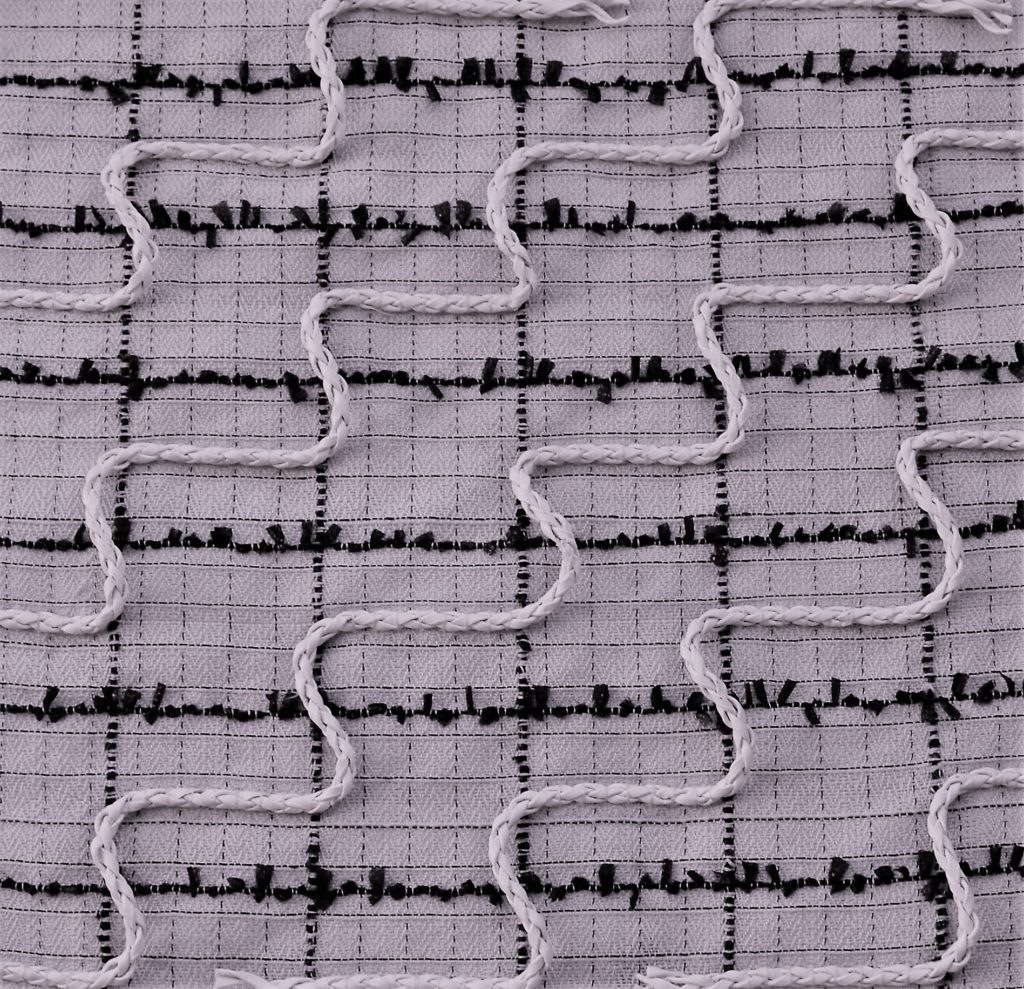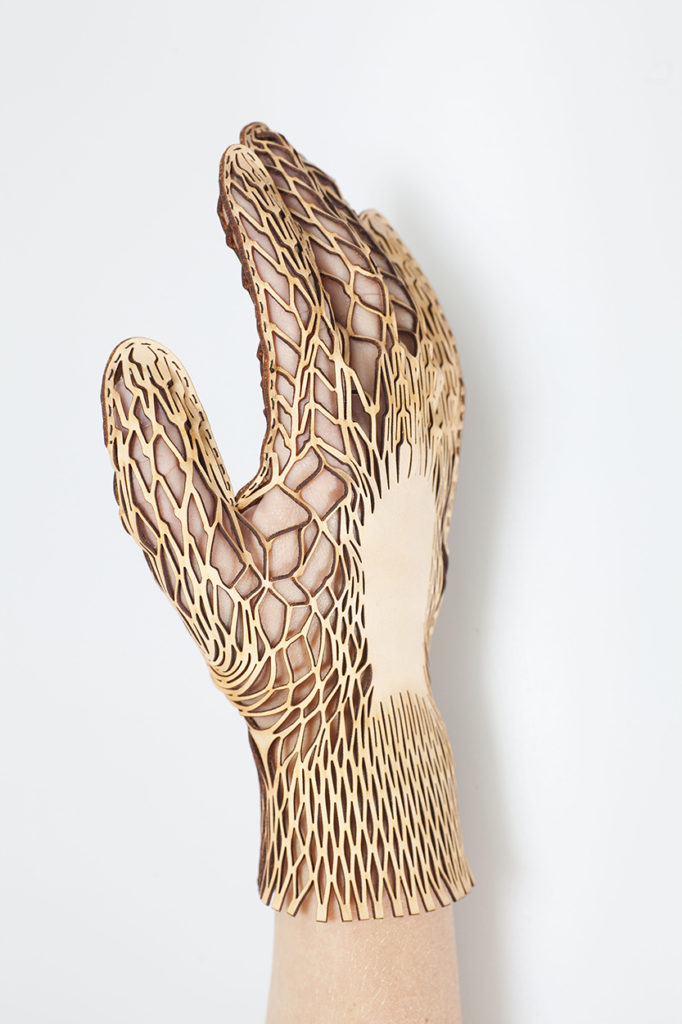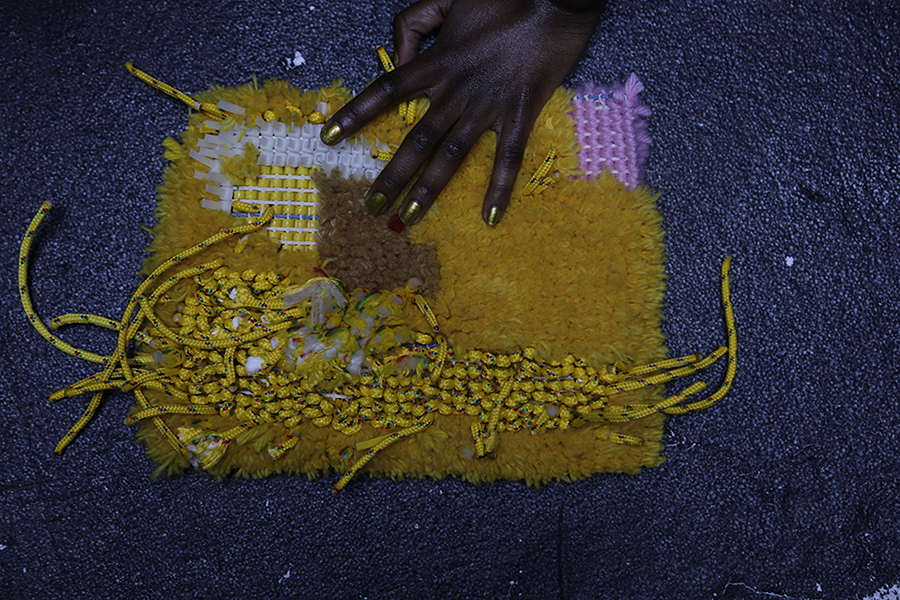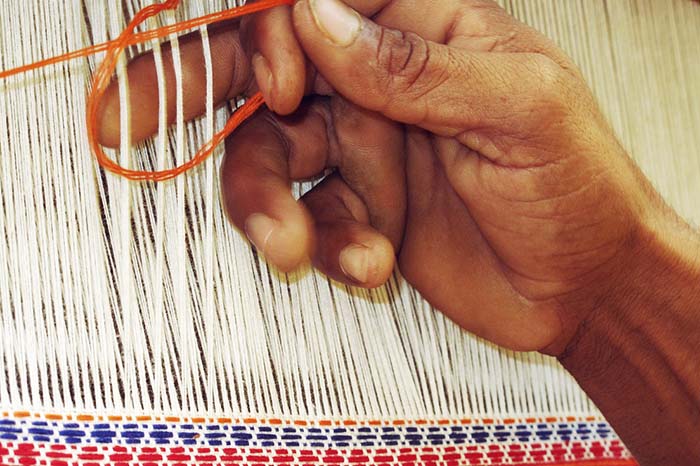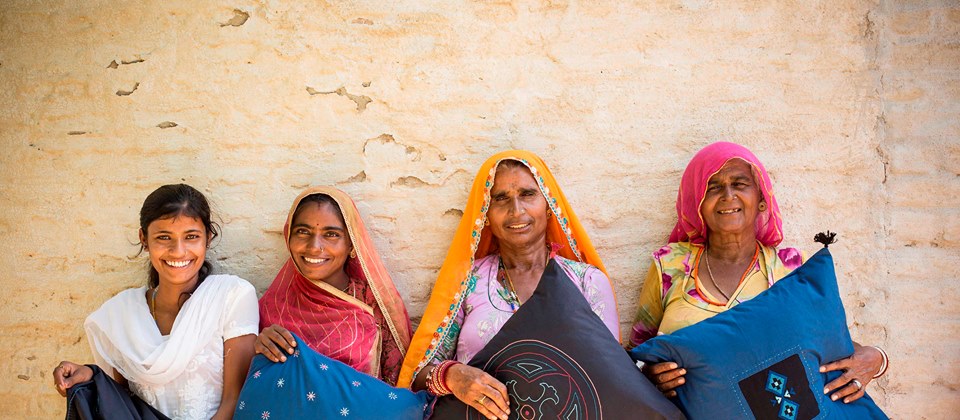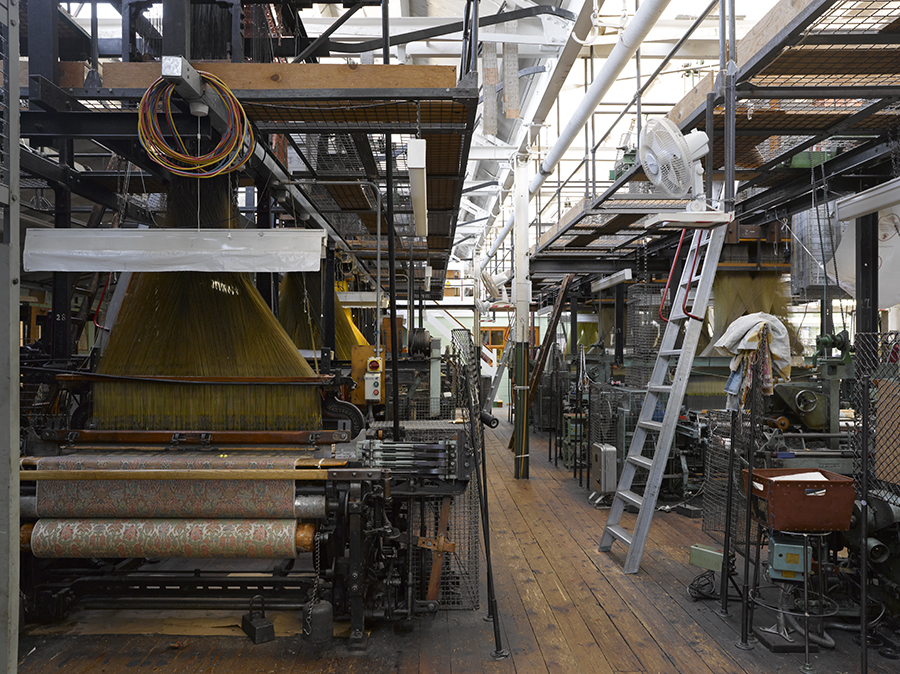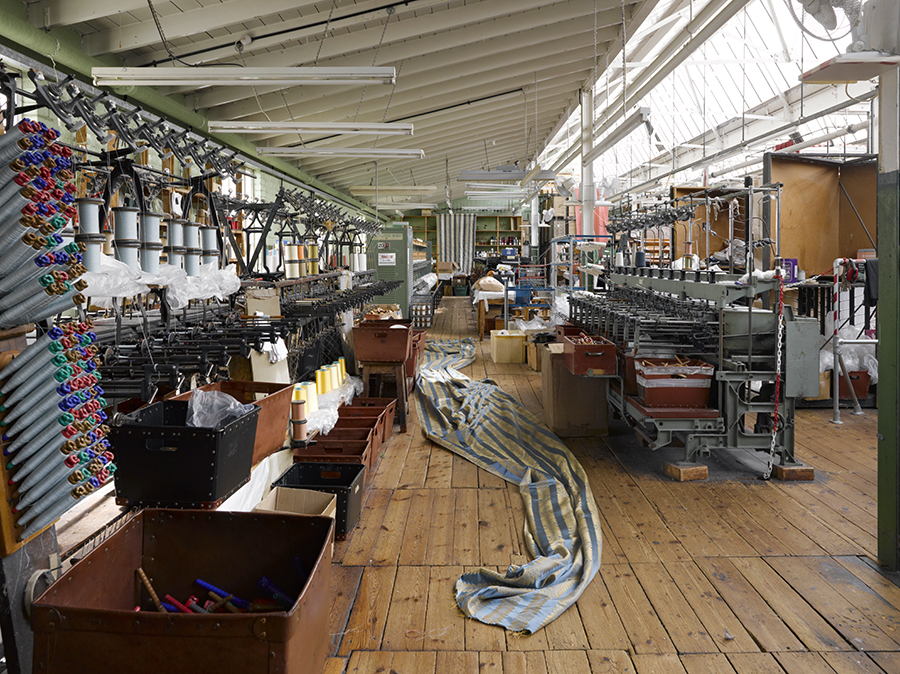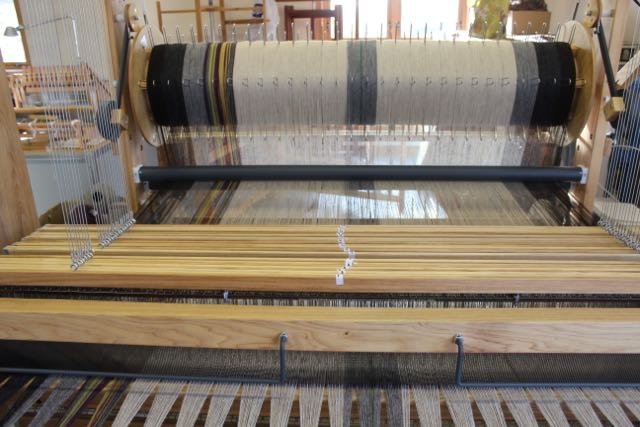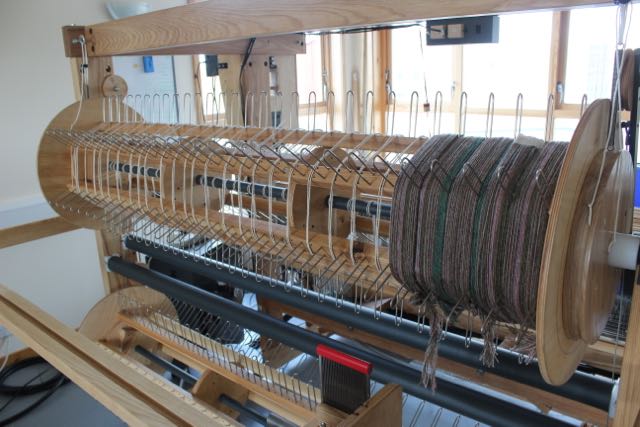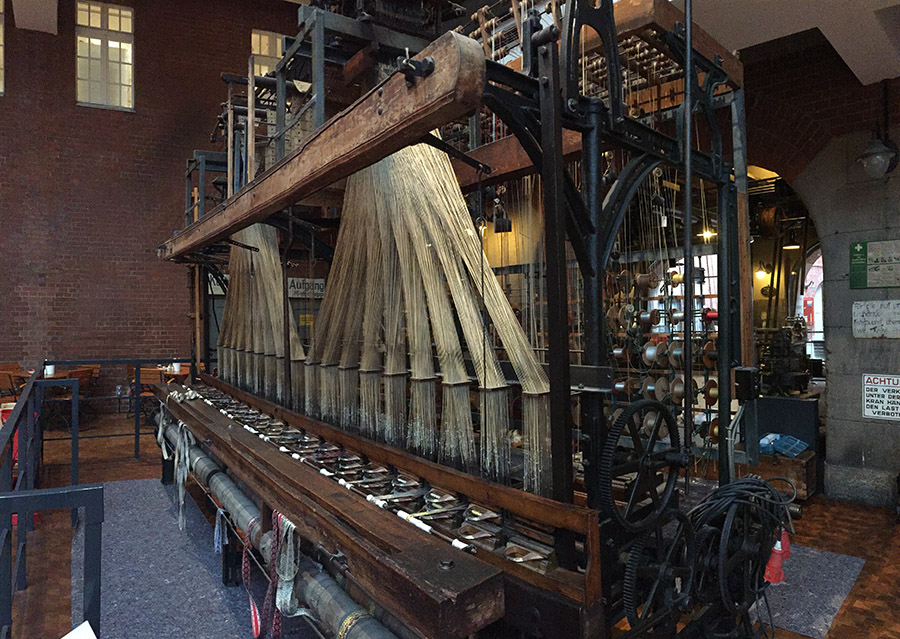
An exciting new project has begun at the German Museum of Technology (Deutsches Technikmuseum) in Berlin, focused on the repair and restoration of their star Jacquard. The photograph of the loom (above) is prior to restoration
The project is being undertaken by Berlin-based British weaver Emma Wood, along with Birgit Zehlike & Nael Alkhteb of Oranienburg, and will run until November 2016. The restoration is taking place in the main hall of the museum, and is open for all visitors to watch.
Emma Wood will be reporting for The Weave Shed on the restoration of a jacquard loom in Berlin in a series of posts during her residency.
This particular Jacquard was built in the 1920s in Germany, and it arrived at the museum in around 1990, shortly after the fall of the Berlin Wall. The loom is designed for weaving ribbons, and it has two Jacquard mechanisms, each one being capable of producing 9 ribbons simultaneously. Sadly the loom has fallen into a state of disrepair after roughly a decade of non-use, but this restoration project provides a rare opportunity to get up-close and personal with such a specialised loom.
First Days
The first days of the restoration involved doing an overall analysis of the loom, and getting to grips with how it works. Â The Jacquard mechanisms are operated by punchcards, and the warp threads are spread across individual spools, instead of warp beams. Â These spools are then weighted to set the tension.
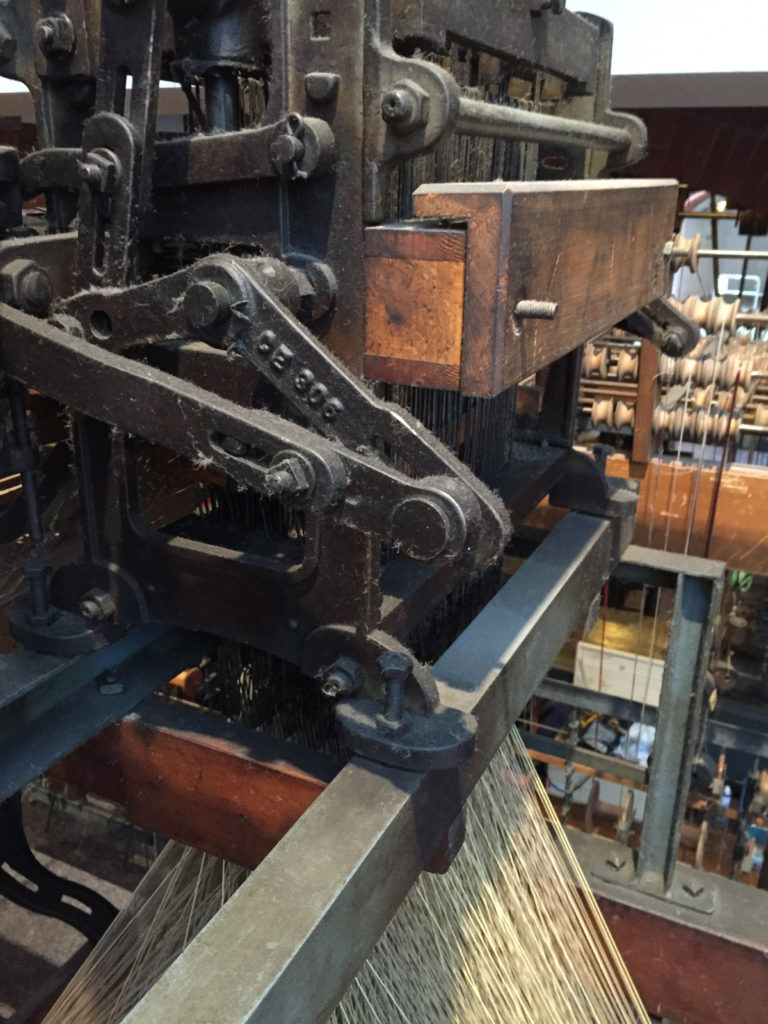
Beginning the analysis at the top of the loom, it became clear to the team that a piece from the left Jacquard mechanism was missing, which would help rotate the punchcards evenly. Â It was also obvious that a large number of the punchcards were damaged, most likely from water damage and humidity. Â The damaged punchcards offer an exciting opportunity to experiment with new techniques and materials, and to use some of the latest technology to create cards that are both precise and long-lasting.
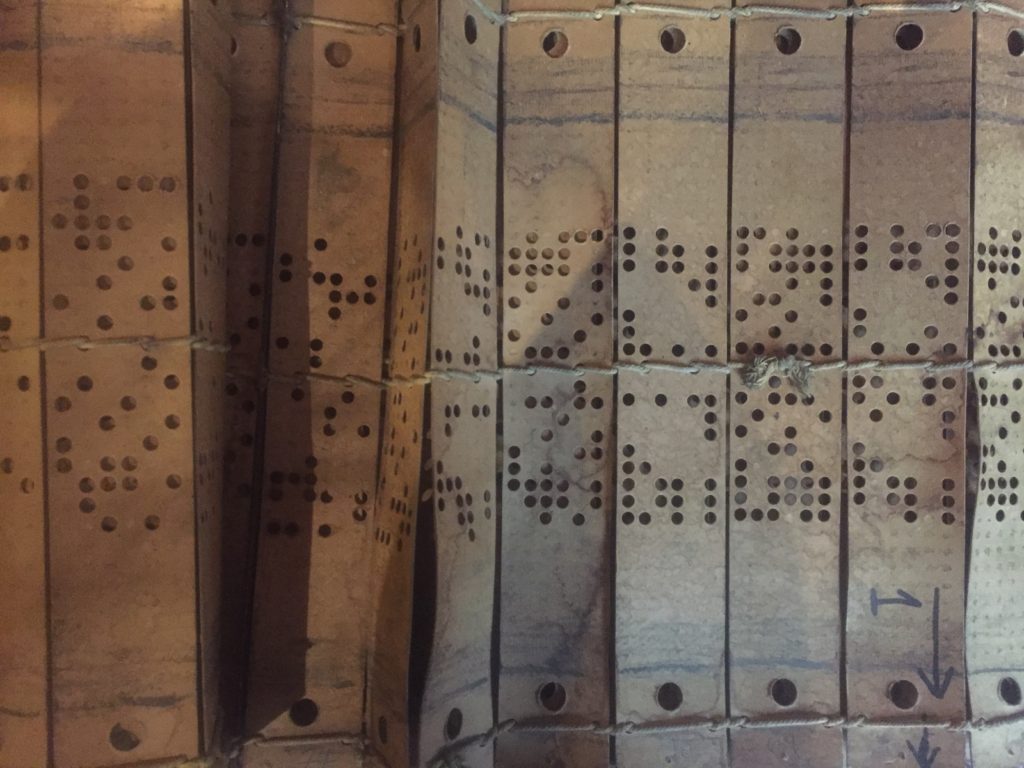
The remaining bulk of the work over the first days has been focused on thoroughly cleaning the entire loom.  Given that it was last operated over 10 years, the team have found themselves faced with a fair amount of mechanical grease and dirt, all of which needs to be cleaned away.  The results are already rewarding, as they have begun to unearth stunning steel and brass metalwork, along with uncovering the original deep green of the loom’s mainframe. Continue reading →
 Esther Van Schuylenbergh  is a designer with a master’s degree in Textile Design at the School of Arts in Ghent, Belgium. After  graduation in 2014 she worked as a textile designer for a Belgian wall covering company until setting up her own design studio in Ghent in 2016.
Esther Van Schuylenbergh  is a designer with a master’s degree in Textile Design at the School of Arts in Ghent, Belgium. After  graduation in 2014 she worked as a textile designer for a Belgian wall covering company until setting up her own design studio in Ghent in 2016.



